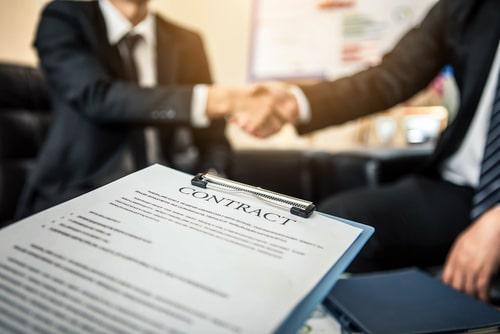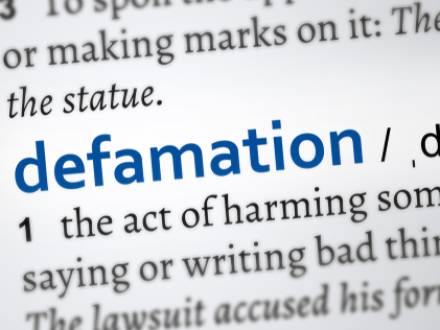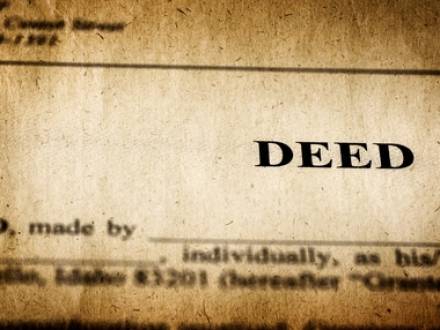Recent Blog Posts
Tips for Creating Effective Business Contracts
 Business contracts are meant to prevent disputes, not create them. Yet disagreements over contract terms remain common. In 2025, federal court data showed that contract cases made up more than 10 percent of all civil filings. Many of these disputes could be avoided with better planning and clearer language at the outset.
Business contracts are meant to prevent disputes, not create them. Yet disagreements over contract terms remain common. In 2025, federal court data showed that contract cases made up more than 10 percent of all civil filings. Many of these disputes could be avoided with better planning and clearer language at the outset.
As of 2026, Texas businesses still depend on well-written contracts to protect cash flow, reduce misunderstandings, and keep projects moving. If you are drafting agreements or dealing with a breach of contract, Hood County, TX contract lawyers can help you build contracts that are clear, enforceable, and practical.
What Terms Should You Always Include in a Business Contract?
Most contract problems come from missing basics. Strong agreements usually cover:
What Happens When You Die With No Estate Plan?
 As of 2026, Texas continues to rely on intestacy laws when someone passes away without an estate plan. Texas law determines who inherits property, who manages the estate, and how certain family issues are handled. These outcomes often do not reflect what the decedent would have wanted.
As of 2026, Texas continues to rely on intestacy laws when someone passes away without an estate plan. Texas law determines who inherits property, who manages the estate, and how certain family issues are handled. These outcomes often do not reflect what the decedent would have wanted.
According to the Federal Reserve’s 2025 Survey of Household Economics and Decisionmaking, most U.S. adults still do not have a will or formal estate plan in place. When no plan exists, families are left to navigate state default rules during an already difficult time.
Speaking with the Tarrant County, TX estate planning lawyers at Cain & Kiel Law before problems arise can help ensure your wishes are followed and your family is protected.
What Does It Mean To Die Without an Estate Plan in Texas?
Dying without an estate plan is legally known as dying "intestate." This means there is no valid will or trust directing how property should be distributed.
How Do I Remove an Executor in Texas?
 An executor is supposed to manage an estate fairly, follow the will, and act in the best interests of beneficiaries. When that does not happen, frustration and conflict often follow. If you believe an executor is mishandling an estate, Texas law may allow for removal.
An executor is supposed to manage an estate fairly, follow the will, and act in the best interests of beneficiaries. When that does not happen, frustration and conflict often follow. If you believe an executor is mishandling an estate, Texas law may allow for removal.
Probate courts across the state follow clear legal standards for these disputes. If you are dealing with this situation, speaking with our Hill County, TX estate planning lawyer can help you understand whether removal is possible and how to move forward.
When Can an Executor Be Removed in Texas?
Not every disagreement is a good reason to remove an executor. Texas courts require valid legal reasons. The main statute governing removal is Texas Estates Code § 404.003, which lists specific grounds for removing an independent executor.
Preventing Forced Ranch Sales in Texas Partition Lawsuits
 Texas ranchland often stays in the family for generations, until one heir decides he or she wants cash instead of cattle. Under Texas partition law, a single unhappy heir can trigger a lawsuit that forces the entire ranch to be sold. Further, as Texas land values climb, investors increasingly approach heirs with offers to buy small fractional shares. Once they own even a small interest, the Texas partition law can be used to force the sale of the entire property.
Texas ranchland often stays in the family for generations, until one heir decides he or she wants cash instead of cattle. Under Texas partition law, a single unhappy heir can trigger a lawsuit that forces the entire ranch to be sold. Further, as Texas land values climb, investors increasingly approach heirs with offers to buy small fractional shares. Once they own even a small interest, the Texas partition law can be used to force the sale of the entire property.
Because Texas law (Property Code Chapter 23) strongly favors the right of any co-owner to force a partition, ranchland can be sold quickly even if only one heir is in favor of the sale. Courts do not consider sentiment or legacy when an heir files for partition. If the land cannot be divided fairly, the judge may order a sale, often below market value.
Strategic estate planning is the most effective way to prevent such an outcome and ensure the property remains in the family for future generations. A knowledgeable Hood County, TX estate planning lawyer can help you ensure that your property remains where you want it – with your family members, for generations to come.
Texas Micro Franchising Risks: What Contracts Can Miss
 As entrepreneurs search for lower-cost, turnkey business opportunities, micro franchising is exploding across Texas. Unlike traditional franchise systems, which require significant capital and established operational manuals, micro-franchises can move faster, cost less, and rely more on informal practices.
As entrepreneurs search for lower-cost, turnkey business opportunities, micro franchising is exploding across Texas. Unlike traditional franchise systems, which require significant capital and established operational manuals, micro-franchises can move faster, cost less, and rely more on informal practices.
Although this sounds great in theory, contract issues are common in Texas micro-franchises. From incomplete revenue-sharing terms to gaps in trademark control, both sides can end up compromised when the contract is ambiguous. An experienced Hood County, TX business and commercial law attorney can help ensure that your micro-franchise brings you success without contract issues.
What is Micro-Franchising and Why Is It Growing in Texas?
A micro-franchise is a simplified franchise model with a lower cost (typically under $25,000). Micro-franchises are popular among entrepreneurs because they offer a proven business model with lower financial risk. Many micro-franchises can be run from home or as a mobile business, lowering overhead costs. Industries that are adopting micro-franchises include mobile auto detailing, landscaping, food carts, web design, senior care, fitness, tech services, home-based retail, tutoring, cleaning, and pet services.
Normal Texas Real Estate Closings vs. Short Sale Closings
 While no two real estate closings in Texas are exactly alike, when it comes to short sales, even the most experienced buyer can be caught off guard. Unlike a "normal" real estate closing, which is generally very predictable, a short sale involves additional "layers," even when it goes as smoothly as possible.
While no two real estate closings in Texas are exactly alike, when it comes to short sales, even the most experienced buyer can be caught off guard. Unlike a "normal" real estate closing, which is generally very predictable, a short sale involves additional "layers," even when it goes as smoothly as possible.
Whether you are a first-time homebuyer or a seasoned investor, it is crucial that you understand how short sale closings differ from standard real estate transactions. An experienced Tarrant County, TX real estate lawyer can help you plan strategically, protect your earnest money, and potentially help you avoid months of unnecessary waiting.
What Is a "Normal" Texas Real Estate Closing?
In a "normal" Texas real estate closing, the buyer and seller agree on terms, inspections, and financing. The title work for the closing and the underwriting process happen simultaneously, with a typical 30-45 day window to closing day. The title company coordinates all the details, including signing, funding, and recording.
Lucid Intervals and Will Contests: Texas Courts Weigh In
 In the state of Texas, one of the most emotionally charged forms of probate litigation comes up when a will is challenged based on the grounds that the testator (the person who made the will) suffered from dementia. Texas law recognizes that even individuals with significant cognitive decline likely experience "lucid intervals," however brief. These are moments of clarity during which a person can validly execute a will.
In the state of Texas, one of the most emotionally charged forms of probate litigation comes up when a will is challenged based on the grounds that the testator (the person who made the will) suffered from dementia. Texas law recognizes that even individuals with significant cognitive decline likely experience "lucid intervals," however brief. These are moments of clarity during which a person can validly execute a will.
It is important that families, caregivers, and estate planners all understand how Texas courts define and evaluate these moments. If you have any doubts about a will made by a loved one with dementia, or you are in the beginning stages of dementia, and want to create a will, you will benefit from speaking to a highly knowledgeable Hill County, TX estate planning lawyer. Your attorney can explain how Texas courts apply a fact-intensive standard to determine whether a testator knew what he or she was doing when the will was signed.
Can Texas Business Owners Sue for Defamation?
 In today’s digital world, one negative, false statement on social media, in a review, or in a competitor’s ad can devastate the reputation of a business. If you are a Texas business owner, you may wonder whether you can sue someone for defamation when their damaging, untrue statements adversely affect your business.
In today’s digital world, one negative, false statement on social media, in a review, or in a competitor’s ad can devastate the reputation of a business. If you are a Texas business owner, you may wonder whether you can sue someone for defamation when their damaging, untrue statements adversely affect your business.
The answer depends on several legal issues, including whether the statement is provably false, whether your business suffered actual damages as a result of the statement, and whether it was published to third parties. It is essential that you thoroughly understand Texas defamation and slander laws to protect your business's reputation while avoiding a costly mistake. Consulting with a Tarrant County, TX business law attorney should be your first step to combat defamation or slander.
Eminent Domain: Can the State of Texas Really Take Your Land?
 There is no single statistic available on the frequency of eminent domain use in Texas; however, it is a common practice. There have been recent increases in eminent domain in some regions of Texas, notably Williamson County. These instances of eminent domain are often tied to large-scale public infrastructure projects, driven by the state's growing population and economy. According to the Texas Comptroller’s database, more than 5,000 local governments and private companies have been granted the legal power to use eminent domain.
There is no single statistic available on the frequency of eminent domain use in Texas; however, it is a common practice. There have been recent increases in eminent domain in some regions of Texas, notably Williamson County. These instances of eminent domain are often tied to large-scale public infrastructure projects, driven by the state's growing population and economy. According to the Texas Comptroller’s database, more than 5,000 local governments and private companies have been granted the legal power to use eminent domain.
For Texans, land ownership is often more than just property. Land is heritage, family legacy, and, in many cases, what provides the family’s livelihood. The idea of a state, county, or private company seizing land under eminent domain to build a highway, install a pipeline, or power line can spark fierce resistance. Under the legal principle of eminent domain, the government (and, occasionally, corporations with state authority) can take private land for public use.
Transfer-on-Death Deeds vs. Lady Bird Deeds in Texas
 Estate planning can have many more nuances and choices than many people realize. Each individual’s unique circumstances will determine the choices made during estate planning. In the state of Texas, Transfer-on-Death Deeds and Lady Bird Deeds are similar in that they both serve to transfer property upon death while avoiding probate. However, there are differences between the two that can make a difference in which one you choose.
Estate planning can have many more nuances and choices than many people realize. Each individual’s unique circumstances will determine the choices made during estate planning. In the state of Texas, Transfer-on-Death Deeds and Lady Bird Deeds are similar in that they both serve to transfer property upon death while avoiding probate. However, there are differences between the two that can make a difference in which one you choose.
Probate-avoidance deeds are often used in Texas because they can potentially keep a home out of court, preserving control while you are alive, while sidestepping Medicaid Estate Recovery. It can be beneficial to speak to an experienced Hood County, TX estate planning lawyer to determine which of these choices makes the most sense for your particular situation.
What Are the Primary Differences Between Lady Bird Deeds and Transfer-on-Death Deeds?
Both Transfer-on-Death Deeds (TODDS) and Lady Bird Deeds (LBDs) transfer property upon death without probate, but there are some essential differences between the two, including:
We're Here When You're Ready
To set up a consultation with our attorneys and get the legal help you need, please call 817-645-1717 or fill out the form below:
The use of the Internet or this form for communication with the firm or any individual member of the firm does not establish an attorney-client relationship. Confidential or time-sensitive information should not be sent through this form.
I have read and understand the Disclaimer and Privacy Policy.

 817-645-1717
817-645-1717









